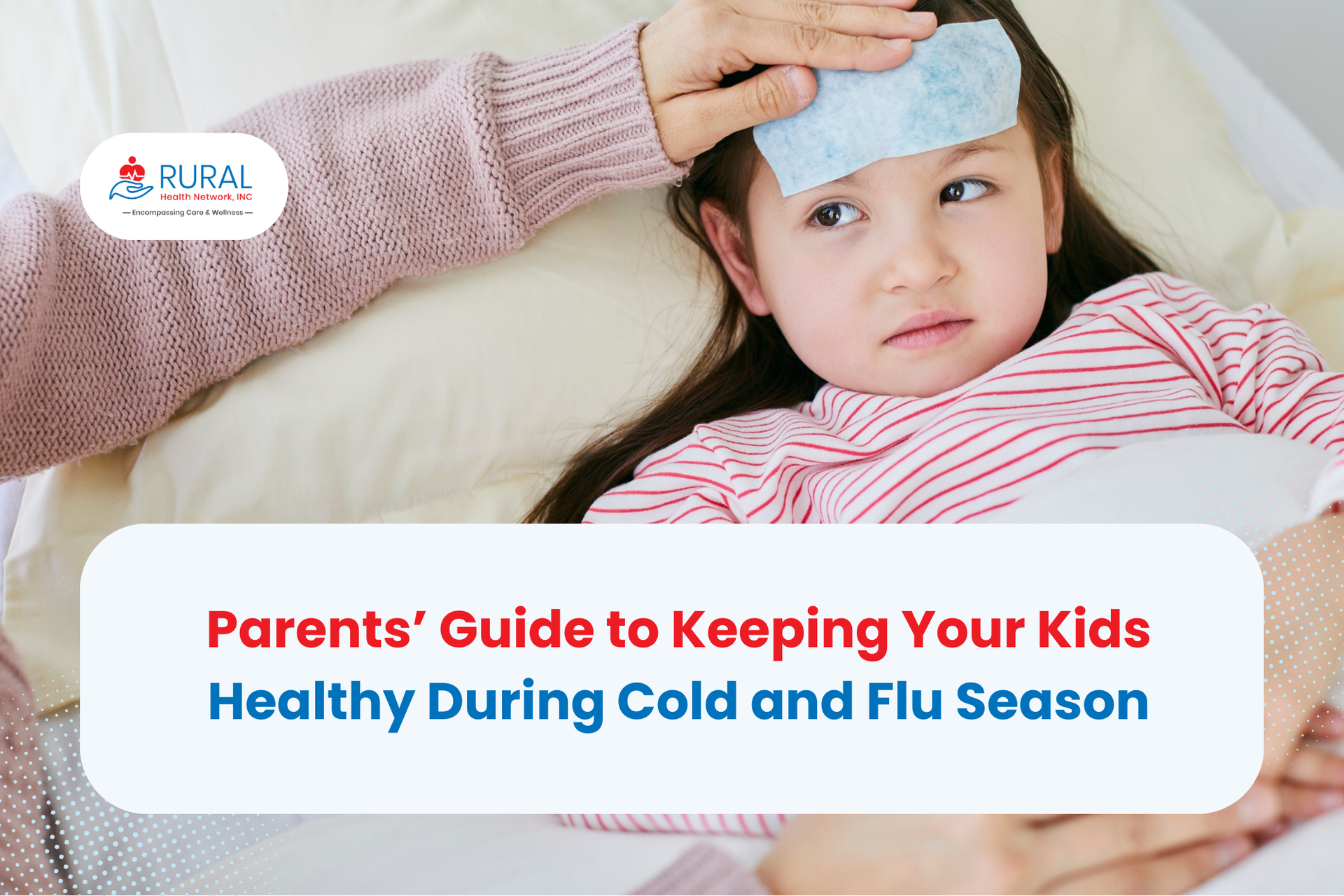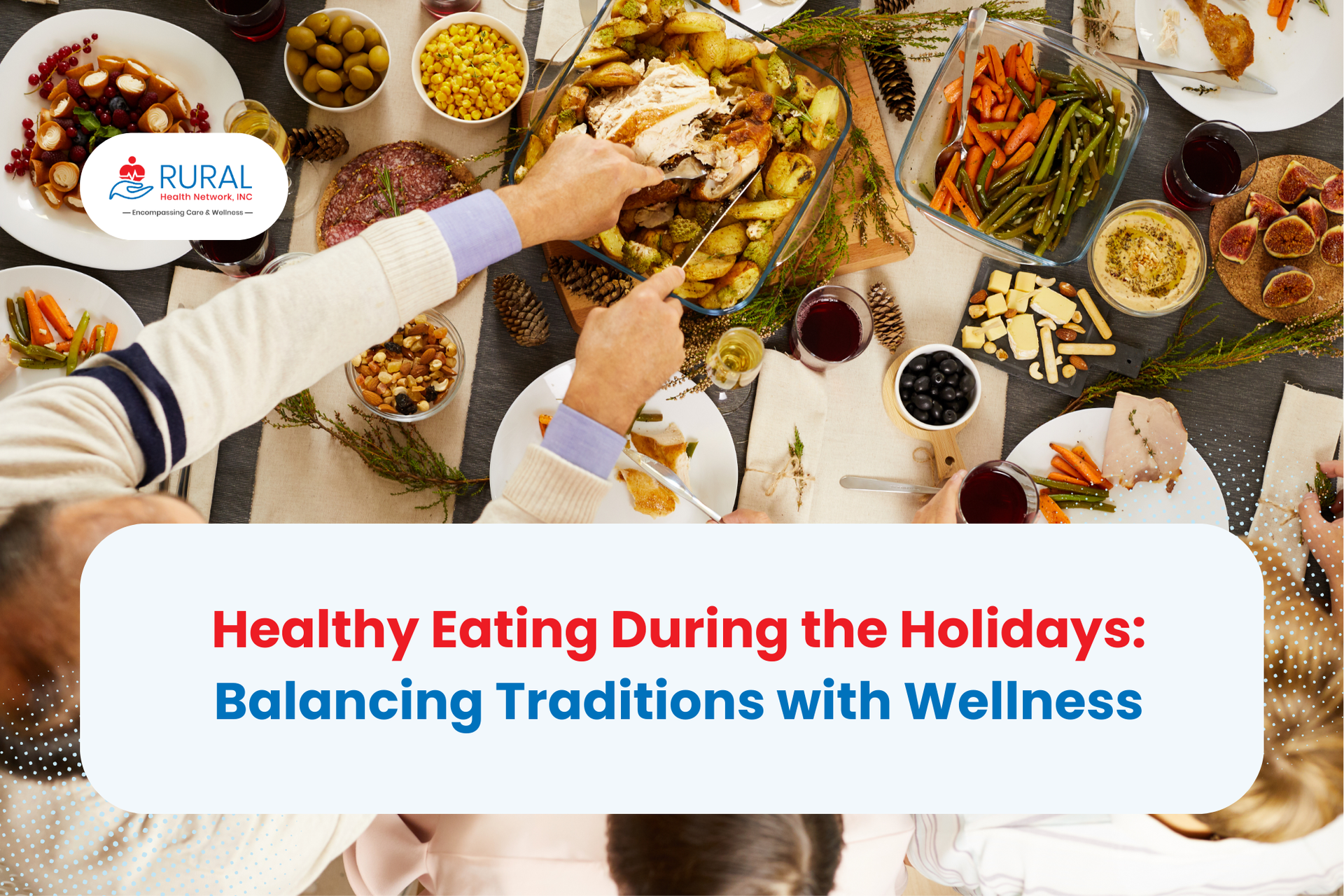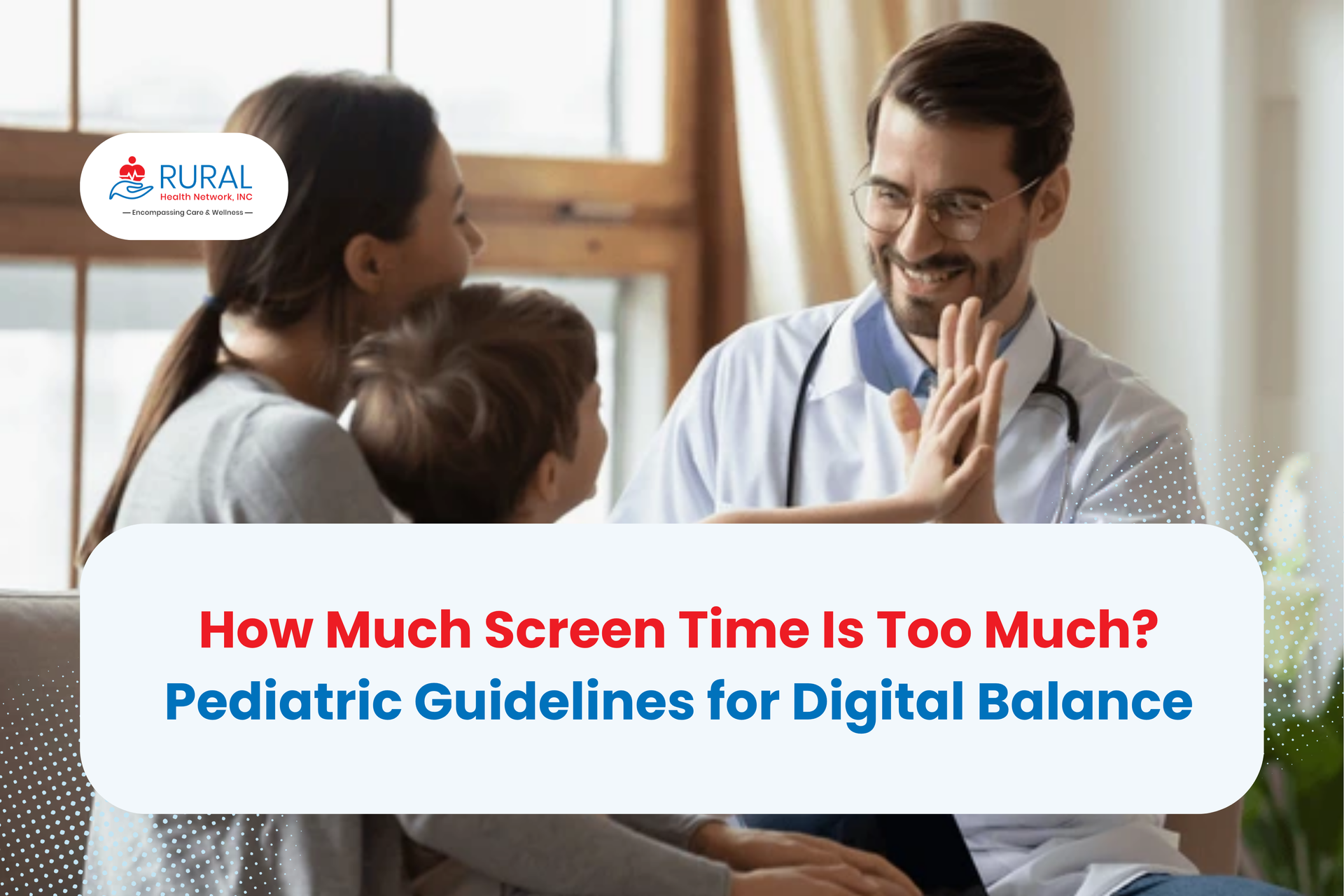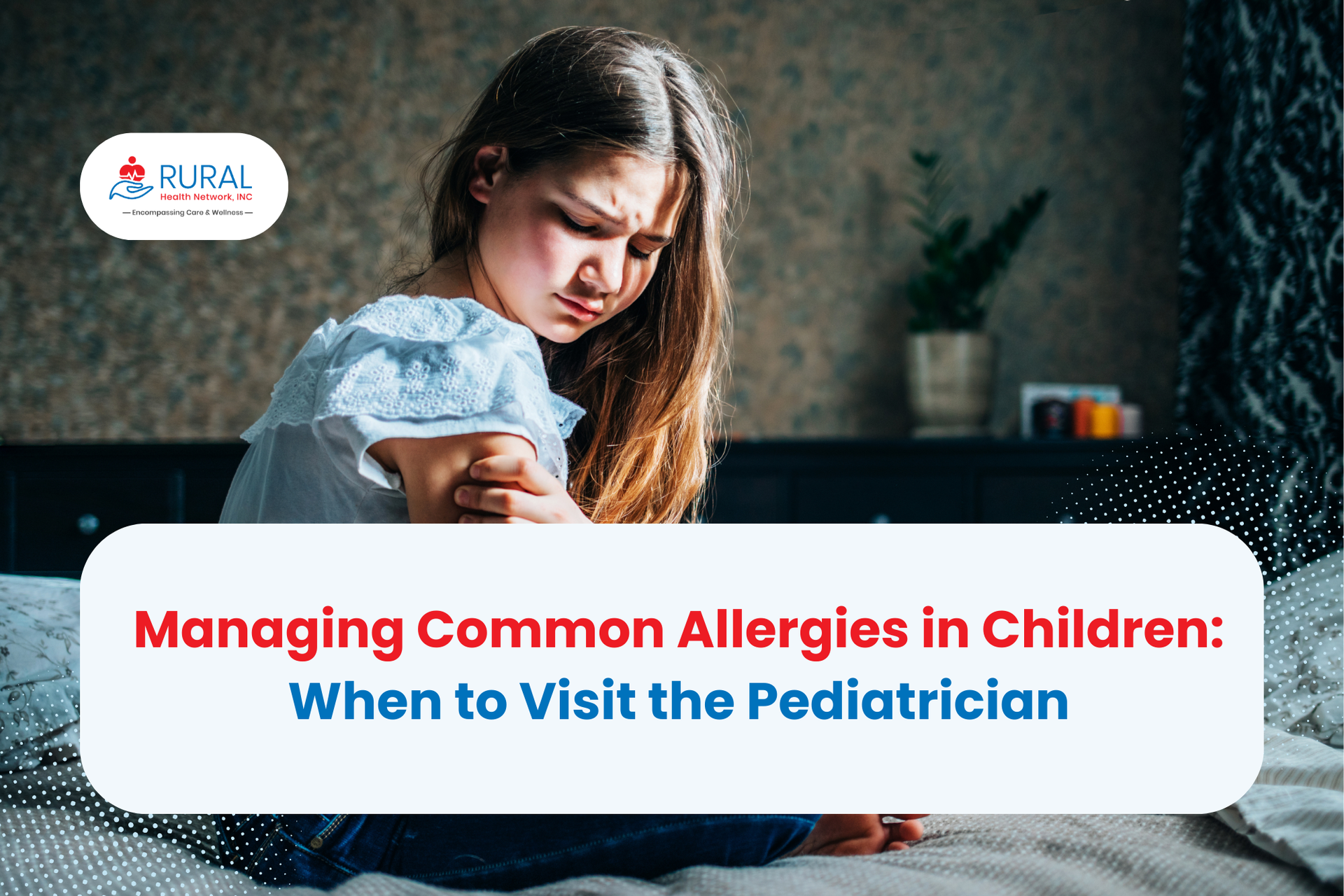As a parent, you want what’s best for your child, ensuring they grow up strong, healthy, and full of energy. One of the most important ways to support your
child’s development is through good nutrition. From building healthy bones to fueling brain growth, the food your child eats today can shape their health for years.
But let’s be honest, encouraging kids to eat healthy is a daily challenge, especially when picky eating or snack battles take over. That’s where pediatric guidance comes in. You don’t have to figure out how to convince your child to eat healthy alone.
Our pediatric team at
Rural Health Network
is here to guide you with simple, personalized tips that make healthy eating doable for your family. With the right support, even the smallest changes can lead to big results. Let’s explore how pediatric guidance can turn mealtimes into opportunities for better habits and less stress.
From Snack Battles to Veggie Victories
Why Healthy Eating Habits in Childhood Matter
Child nutrition advice isn’t just saying, “Eat your veggies.”
It’s about understanding how a balanced diet for children supports everything from brain development to immune system strength. When we nourish kids early on, we’re helping them thrive from childhood and well into adulthood.
Here’s why it matters:
- Fueling Brain Power and Development:
Nutrients like omega-3s, iron, and protein support learning, memory, and emotional balance.
- Physical Development:
Calcium, vitamins, and healthy fats help build strong bones and muscles.
- Immune Health:
Foods rich in vitamins A, C, and zinc help fight common illnesses and infections.
But healthy eating shouldn’t just be short term.
Kids who develop healthy eating habits early are more likely to make smart food choices as adults. Poor habits—like too many processed snacks or skipping meals—can raise the risk of obesity, diabetes, and other chronic conditions down the road.
Common Eating Challenges Parents Face
Knowing
what to feed your child is one thing; getting them to actually eat it is another. Improving children’s eating habits can be tough, especially when managing picky eaters or working with limited time and resources.
Here are some common struggles we see:
- “My child just won’t eat!”
- Limited appetites or food refusal can be frustrating. Kids might skip meals, push away vegetables, or only want familiar snacks.
- Growth spurts, moods, or even boredom with the same meals can play a role.
- “They only want junk food.”
- Processed foods are convenient and often preferred by kids, but they lack the nutrients needed for proper growth.
- Over time, reliance on high-sugar, high-salt snacks can crowd out healthier options.
- “I don’t have the time or energy to cook healthy meals everyday.”
- Between work, school, and family commitments, it’s tough to prepare fresh meals regularly.
- Many rural families also deal with limited grocery options or long distances to stores, making quick, healthy choices harder to find.
Improving children’s eating habits doesn’t require perfection. It just takes small, steady steps. With the right support, even picky eaters can learn to enjoy a broader range of healthy foods.
Pediatric Tips to Improve Your Child's Eating Habits
If you’ve been feeling stuck at the dinner table, don’t worry, there are simple, pediatric-approved strategies that can make mealtimes smoother and healthier.
Here’s how you can start building
healthy eating habits for kids right at home:
- Create structured mealtime:
Kids thrive on routine. Serving meals and snacks at consistent times each day helps regulate appetite and reduces grazing.
- Offer various food options:
It may take several tries before a child warms up to a new food, and that’s okay. Keep offering small portions of fruits, veggies, and proteins alongside familiar favorites.
- Involve them in food preparation:
Kids love being involved. Whether it’s grocery shopping or stirring the pot, participation builds interest.
- Be their role model: Kids watch what you eat, even when you think you’re not. If they see you enjoying a colorful plate, they’re more likely to do the same.
- User positive reinforcement:
Celebrate small wins. A “great job trying that broccoli!” goes beyond pressuring or punishing.
- Limit sugary snacks and drinks:
Swap soda and sweets for water, fruits, and whole food whenever possible.
The Role of Pediatric Guidance
Building healthy habits is a journey, and sometimes, it helps to have a professional guide along the way. Pediatric guidance for healthy eating offers the expert support families need to stay on track.
Here’s what our pediatricians focus on during
wellness exams and nutrition check-ins:
We look for signs that your child might be missing key nutrients like iron, vitamin D, or calcium, which are critical for growth and development.
Regular height, weight, and BMI tracking help us spot any concerns early and adjust recommendations as needed.
How a child eat—whether they rush, avoid meals, or seem overly selective—can tell us a lot about their nutrition habits and emotional needs.
Pediatric guidance isn’t one-size-fits-all. We tailor our advice based on your child’s:
- Age and stage of development
- Medical history and health needs
- Family routines, resources, and cultural preferences
When Should You Seek Extra Help?
If you notice any of these signs, it might be time to check in with your pediatrician:
- Ongoing weight loss or trouble gaining weight
- Persistent fatigue or low-energy
- Frequent colds, infections, or slow healing
- Extreme picky eating that limits entire food groups
Rural Pediatric Nutrition Care: Support Where It's Needed Most
Living in rural areas can make access to consistent healthcare a little more challenging. At
Rural Health Network, Inc., we are committed to bringing expert care to your community.
Through our
general pediatrics services, we offer:
- Personalized nutrition tips for every stage of growth
- Well-baby and well-child visits to monitor development
- Parent support and education tailored to your lifestyle
We understand the hurdles families face, such as distance, cost, and food access. That’s why we tailor our care to fit your family’s needs, offering guidance that aligns with your lifestyle and resources.
With
Rural Health Network
by your side, better nutrition and better health are always within reach.
One Healthy Choice at a Time
Helping your child build healthy eating habits doesn’t happen overnight. With a little patience, a sprinkle of consistency, and support from your
trusted pediatric care, those small changes you make today can lead to big benefits tomorrow.
If you’re ready for a little extra support or simply want personalized child nutrition advice, we’re here to help. Schedule a visit with our pediatric team at
Rural Health Network, Inc.,
and let’s work together to help your child grow strong, healthy, and happy.
Let’s Create Your Child’s Nutrition Game Plan













